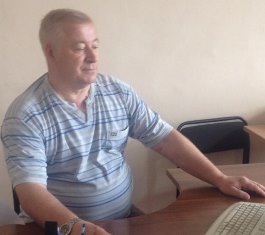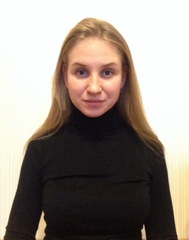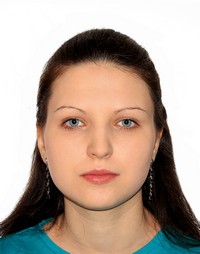Lovcov Alexander Nikolaevich
 Place of work: Irkutsk College of Automobile Transport and Road Construction, Irkutsk, Russia
Place of work: Irkutsk College of Automobile Transport and Road Construction, Irkutsk, Russia
Post: teacher
 Place of work: Irkutsk College of Automobile Transport and Road Construction, Irkutsk, Russia
Place of work: Irkutsk College of Automobile Transport and Road Construction, Irkutsk, Russia
Post: teacher
BBK 83.3(4–§—Ä–į)6-445 UDC 821(4).09
Vikulova L. G., Gerasimova S. A., Makarova I. V., Esina A. V.
Article is devoted to a cultural phenomenon ‚Äď classical work A. de Saint-Exup√©ry “Little Prince”. The problem of reader’s and viewer’s perception of the philosophical fairy tale is considered. Interaction and synthesis of different types of arts which supplement is analyzed and expand ideas of works of the writer and his literary reputation.
Keywords: philosophical tale; literary reputation; the reader and the viewer’s perception.
Download article in PDF (402.7 kB)
 E-mail: aleksandraesina@mail.ru
E-mail: aleksandraesina@mail.ru
Place of study: State Autonomous Educational Establishment of Higher Professional Education ¬ęMoscow Municipal Pedagogical University¬Ľ, Moscow, Russia
Status: student of Modern Languages Institute, MCPU
 E–mail: gerasvetlana@yandex.ru
E–mail: gerasvetlana@yandex.ru
Place of work: State Autonomous Educational Institution of Higher Education ¬ęMoscow City Teacher Training University¬Ľ, Moscow, Russia
Academic degree: Candidate of Philological Sciences
Post: senior assistant professor of the French language and linguistics department of Institute of Foreign Languages
Specialty from nomenclature of scientific specialties (Code of Higher Attestation Commission): ¬†10.02.19 ‚Äď language theory
Scientific major:  text theory, history of language, Language teaching.
UDC 004:[316.3:008] BBK 74.58:73
L. N. Puzeikina, V. B. Rebikov
Bad pronunciation can damage even good knowledge of foreign language making the speech absolutely incomprehensible for the interlocutor. The reduction of academic teaching hours for phonetics in modern foreign language teaching programs (or even complete absence of this subject) can be compensated by innovative methods of teaching foreign languages, for example, e-learning platform Moodle. Experience of practical usage of such course is presented in this article.
Key words: German studies, teaching the German language, phonetics of the German language, e-learning, blended learning
St. Petersburg, Russland
St. Petersburg, Russland
Eine schlechte Aussprache kann auch gute Fremdsprachenkenntnisse zunichte machen und die Rede f√ľr den Gespr√§chspartner ganz unverst√§ndlich machen. Im Zusammenhang mit der Streichung der Unterrichtsstunden zum Studium der Phonetik in den gegenw√§rtigen Studienprogrammen f√ľr Fremdsprachenstudium (oder sogar mit dem vollkommenen Fehlen dieses Unterrichtsfaches), k√∂nnen diese Verluste durch neue, innovative Methoden des Fremdsprachenunterrichts wieder gutgemacht werden, zum Beispiel durch LMS Moodle. Dieser Artikel ist das Ergebnis der Erfahrung, die bei der Anwendung eines solchen Kurses gewonnen wurde.
Schl√ľsselw√∂rter: Germanistik, Deutschunterricht, Phonetik, Netzbegleitung, Distanzunterricht**
* Die Autoren danken herzlich unserem Kollegen, Herren Dr. Oliver Pfau f√ľr seine freundliche und unersetzbare Hilfe bei der Korrektur des vorliegenden Artikels und f√ľr die Teilnahme an den phonetischen Aufnahmen des Phonetischen Einf√ľhrungskurses. Der beste Dank gilt auch Frau Esther Machhein f√ľr Ihre Leistung bei den Aufnahmen des Kurses.
** Das Thema war in Form eines Impulsreferates bei der XXXI. DAAD-Germanistikkonferenz ‚ÄěNeue Wege der Fachdidaktik‚Äú in Pjatigorsk (15.-17.05.2014) vorgestellt.
Download article in PDF (600.9 kB)
UDC 811.51 BBK 81.2-03
Novgorodov I. N., Efremov N. N., Gainutdinova A. F., Ishkildina L. K.
Abstract: Background. This article is about the Leipzig‚ÄďJakarta list of the language of the Crimean Tatars. Authors come to a conclusion that the Crimean Tatar language is more similar to the Oghuz Turkic languages according to the Leipzig‚ÄďJakarta list than the Kipchak languages.
Materials and Methods. Research materials are the most resistant words (the Leipzig‚ÄďJakarta list) of the Turkic languages. The most resistant words were written out of the dictionaries of the Turkic languages. In this survey, the comparative method is used as the main method.
Results. Words of the Leipzig‚ÄďJakarta list of Crimean Tatar in comparison with the Oghuz and Kipchak languages are revealed.
Discussions. Previously, the Crimean Tatar language was considered to have belonged to the Kipchak group of the Turkic languages that also included the Tatar, Bashkir and other languages. Authors disagree with this statement and consider the Crimean Tatar language to be more similar to the Oghuz languages than the Kipchak ones.
Keywords: language, the Leipzig-Jakarta list, Crimean Tatar, Oghuz, Kipchak.
*A research was prepared at North-Eastern Federal University within the framework of the project ‚ĄĖ 14-04-00346 on ‚ÄúThe Leipzig-Jakarta list of the Turkic languages‚ÄĚ theme supported by the Russian Humanitarian Science Foundation.
Download article in PDF (260 Kb)
UDC 377.8 BBK 78.234.569
The article is devoted to the problem of the organization of students‚Äô independent work and the implementation of its control in the conditions of the college educational environment. The components of the information environment, information services, which allow to realize controlled independent work of students in the information-educational college environment are described. The article is also provided information about the specificity of students ‘ independent work in the global educational space.
Keywords: independent work of students, information educational environment, FSES.
Download article in PDF (140.9 kB)
–£–Ē–ö 377 –Ď–Ď–ö 74
Lapina O. A., Savel’eva D. V.
The article provides an analytical overview of the possible approaches to the understanding of the term ¬ęlife-purpose values of the future professionals¬Ľ. It describes the trends and prospects of development of relations to the profession by the future specialist within the meaning of life.
Keywords: meaning of life, values, value orientation, life-purpose values, self-educational activity
Download article in PDF (143.0 kB)
UDC 33‘339 BBK 65.049
Gold has always been one of the most important metals in the history of humanity that had influenced different countries’ cultural, economical and industrial development. Starting from ancient times China has used gold in various spheres and today the level of its consumption has increased. In this article the author traces the main role of gold in China‚Äôs development and reveals biggest problems in accumulating of gold reserves in China.
Key words: gold, China, history, economic, ecology.
Download article in PDF (237.0 kB)
 E–mail: K_Khokhlova_ru@mail.ru
E–mail: K_Khokhlova_ru@mail.ru
Place of study: Irkutsk Euro-Asian Linguistic Institute (Branch of Moscow State Linguistic University, Russia).
Status: 3d year student of Faculty of Social Science, Department of Oriental Studies.
Research advisor: Kremnev Evgeny Vladimirovich, PhD in Sociology, Associate Professor, Head of Oriental Languages Department.